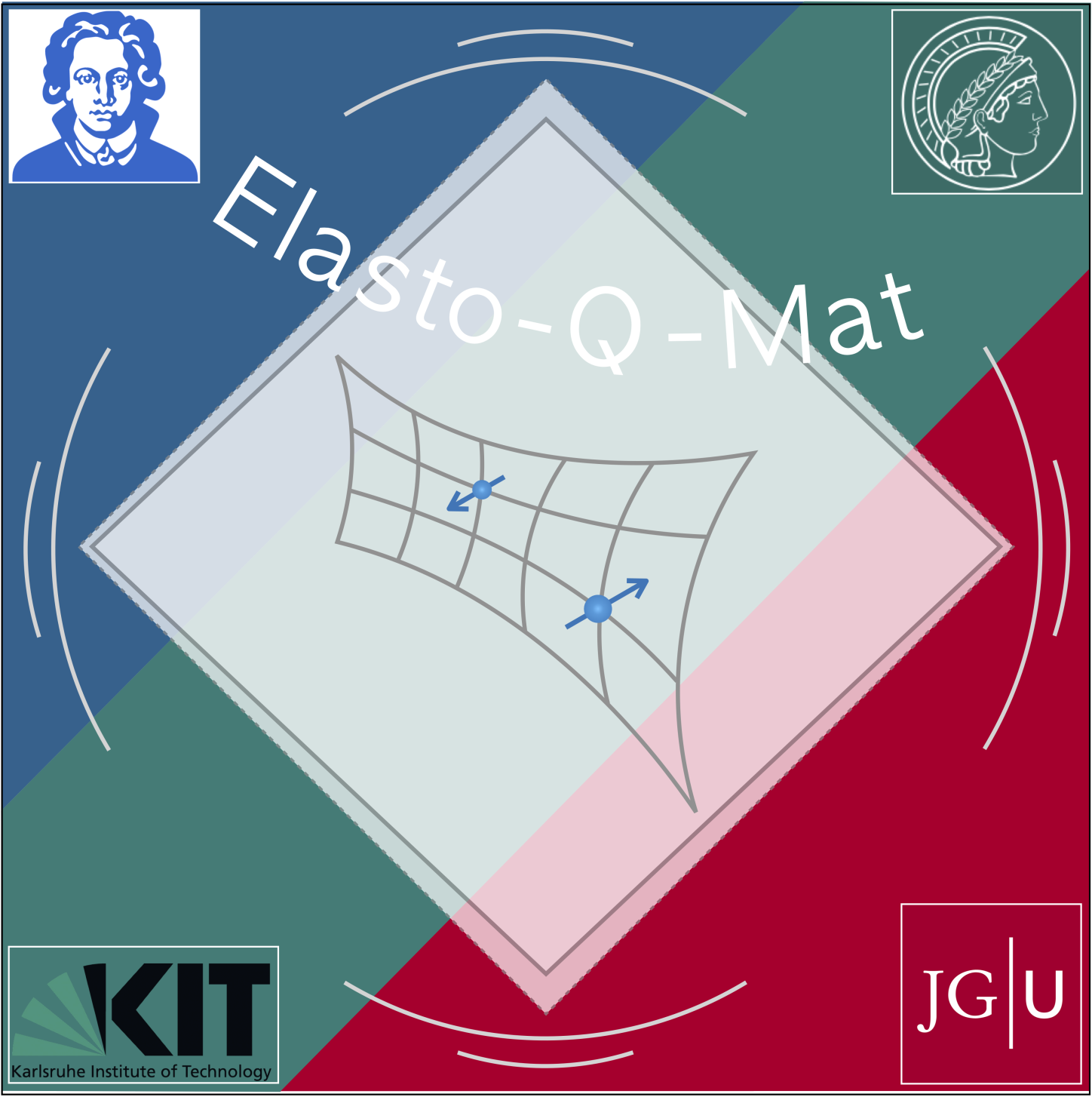Institute of Physics
At a glance
At a glance
The Institute of Physics is devoted to achieving a deeper understanding of the structure and dynamics of condensed matter.
We are focusing on phenomena such as superconductivity, magnetism, unconventional charge transport/order, and various metal-insulator transitions in systems with strongly correlated electrons – or more generally, strong coupling between the electronic, lattice and spin degrees of freedom. The different groups work together and span the full range of capabilities, starting from the synthesis of novel materials, via a range of experimental methods, through to the realisation of prototype devices with novel behaviour.
These phenomena emerge in systems of different size (from nanoscale to macroscopic) and shape (granular structure, thin films or bulk single crystals), and are studied with regard to their electronic and magnetic properties by a variety of methods: transport, thermodynamics, magnetisation, and spectroscopy (across a wide part of the electromagnetic spectrum and down to nanometer and femtosecond resolution); all at temperatures down to the (sub-) kelvin range.
In order to access the extreme conditions required to observe certain phenomena (e.g. quantum-critical phase transitions, ultrafast non-equilibrium processes), we can employ high electric and magnetic fields (or intense, ultra-short optical pulses) and high pressures, and/or confine the fields in nano-scale devices. Two groups are particularly focused on the terahertz spectral range, which represents the current frontier in high-speed electronics and an emerging spectral window for spectroscopy and sensing.
The Institute of Physics comprises six working groups dealing with current questions of condensed matter physics as in particular:
- Crystal and Materials Laboratory
- Molecular Metals and Magnetic Nanostructures
- Strongly Correlated Electrons and Spins
- Terahertz Photonics
- Thin Films and Nanostructures
- Ultrafast Spectroscopy and Terahertz-Physics
Research Groups
Research Groups
Professors at the Institute of Physics
Photo (from left to right): V. Krozer, H. Roskos, M. Huth, J. Müller, C. Krellner, M. Lang
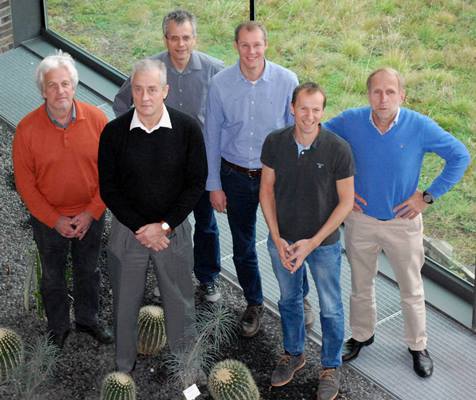
The institute comprises the following six working groups, each focusing on particular aspects in solid-state research:
Research |
Group Leader |
| Crystal and Materials Laboratory |
Prof. Cornelius Krellner |
| Molecular Metals and Magnetic Nanostructures |
Prof. Jens Müller |
| Strongly Correlated Electrons and Spins |
Prof. Michael Lang |
| Terahertz Photonics |
Apl. Prof. Viktor Krozer |
| Thin Films and Nanostructures |
Prof. Michael Huth |
| Ultrafast Spectroscopy and Terahertz-Physics |
Prof. Hartmut Roskos |
Collaborations
Collaborations
Collaborative Research Centre Transregio 288 (SFB TR 288)
CRC TRR288 Elastic Tuning and Response of Electronic Quantum Phases of Matter
The ELASTO-Q-MAT initiative, embodied by this CRC/TRR 288, has the goal to understand, advance, and exploit new physical phenomena emerging from a particularly strong coupling between a material's elasticity and its electronic quantum phases. To this end, we will study the effects of elastic tuning and elastic response of various types of electronic order in representative classes of quantum materials that share a high sensitivity to intrinsic strain or externally applied stress fields. Read more ...
Collaborative Research Centre Transregio 49 (SFB TR 49)
Condensed Matter Systems with Variable Many-Body Interactions
The SFB/TRR49 studies the collective behaviour of interacting many-body systems on a broad phenomenological context. The topics to work on embrace cooperative phenomena such as the Mott metal-insulator transition, superconducting/superfluid phases with strong interactions or Bose-Einstein condensation under various and sometimes extreme conditions. Our approach is characterized by focussing on the phenomenon: the combination of a wide variety of selected materials – from simple model systems like ultra-cold quantum gases or magnon systems to complex quantum magnets or metal-organic solids – makes it possible to separate generic properties from material-specific phenomena. Common to all systems is a high degree of variability giving rise to a purposeful material design by varying the chemical or physical parameters of the system.
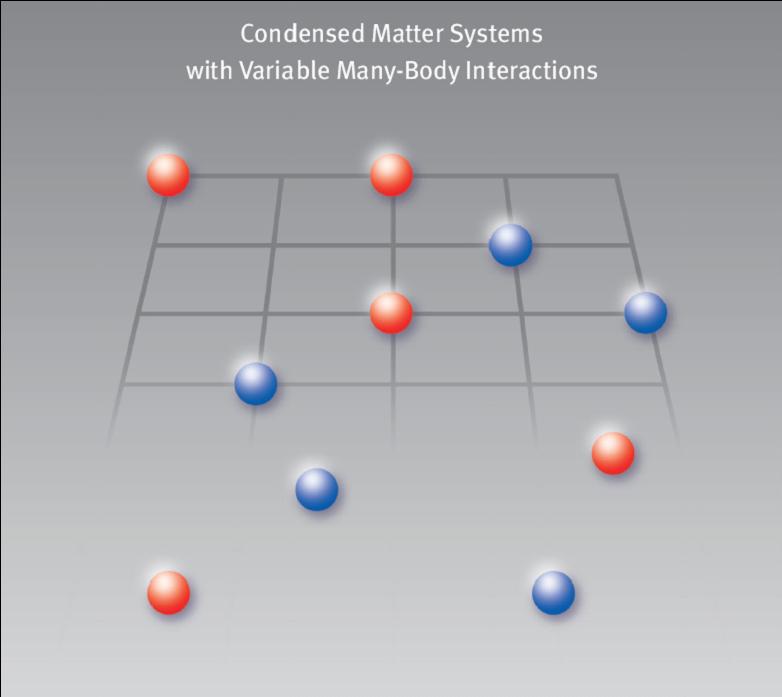
LOEWE
Sensors towards Terahertz
Sensors are an indispensable part of everyday’s life : In every small technical device many sensors are installed such as location and touch sensors in mobile phones, gas sensors in automobiles and incinerators that detect pollutants or step and pulse sensors in watches.
However, many applications, especially in the fields of environmental sensors and bioanalytics, as well as in Real time Monitoring, require innovative Sensor concepts. The primary objective of the project is therefore to establish an interdisciplinary research focus for new sensor technologies in the terahertz frequency range between 0.1 THz and several 10 THz, based on the interaction of the electromagnetic fields of sensor structures with the investigated materials / substances or biological tissue.

Physics Colloquia
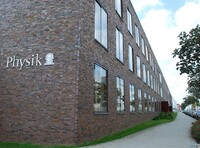
Physics Colloquia
Seminars of the Institute
The Institute of Physics offers regularly seminars on current topics. The schedules for the upcoming seminars can be found here.
Research Group Seminars
Every research group offers weekly seminars concentrating on their particular research sub-field:
- Thin Films and Nanostructures
- Molecular Metals and Magnetic Nanostructures
- "Optisches Kabinett" (photonics and spectroscopy)
- Problems and Methods of Crystal Growth and Material Development
- Spectroscopic Methods in Liquids at High Frequencies
- Latest Results on Current Research Activities in Correlated Electrons and Spin Systems
The schedules for the upcoming seminars can be found here
SFB/TR 49 Kolloquium
Within the framework of the SFB/TR49 "Condensed Matter Systems with Variable Many-Body Interactions" colloquia are regularly held in cooperation with the TU Kaiserslautern and the University of Mainz,
Wednesday Physics Colloquium
Every Wednesday the Faculty of Physics offers interesting Colloquia on current topics over the full range of fields in physics, including international guest scientists.
Teaching
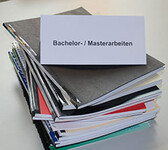
Teaching
The Physics Institute provides educational training for several Bachelor and Master degree programs in physics, as well as the first level state examination for high school teaching degree programs (L3 physics).
For further information please follow:
Facilities & Engineering Services
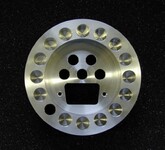
Facilities & Engineering Services
Helium Condenser / Liquefier
At the science Campus Riedberg Goethe University provides its own helium-liquefier. This facility collects and recycles as much of the consumed liquid helium as possible which is both eco-friendly and cost-effective.
Contact
| Siegfried Rapphahn | Tel. | 40413 | ||
| Armin Simek (proxy) | Tel. | 40413 |
Mechanical Engineering-Workshop
The mecanical workshop of the Institute of Physics specializes in mechanical engineering including low-temperature apparatus to provide optimum support for scientific researchers and associated efforts.
Contact
| Knut Pfeiffer and Florian Hohmann | Tel. | 47273 |
Elektronic Engineering-Workshop
The electronics workshop provides a range of electronic services for the Institute of Physics, including maintenance of equipment. Specialized designs and tailored constructions of circuits and electronic devices for experiments related to bachelor, master and doctoral thesis are made in direct consultation with the users.
Telephone: 47233 + 47234





